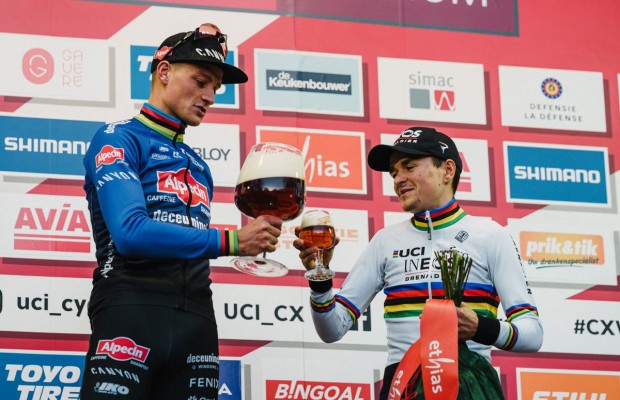The Cycling Super League continues to gain strength and could change this sport forever
The tug-of-war between teams continues, with the general manager of Visma-Lease a Bike at the forefront, challenging race organizers to rethink the organization of cycling, make this sport more profitable and, most importantly, to share in the profits that are generated which, currently, almost entirely go to the major organizers.

Aiming to be like Formula 1. The goal of the Cycling Super League
What seemed like the usual tantrum of cycling teams a few weeks ago is gaining momentum and threatens to change cycling as we know it since its inception at the dawn of the 20th century.
The Super League of cycling project, driven by the teams, in need of greater sources of income due to the increase in budgets year after year since, as has always been the case, these only depend on the contributions of various sponsors. Meanwhile, aspects such as television or image rights are almost exclusively received by the race organizers and, not even by all, as it is the major organizers, those who monopolize the organization of major events such as ASO/Unipublic, RCS or Flanders Classics who take the lion's share.
RECOMENDADO

Can I go cycling with the flu or a cold?

How to change the pedals of any bike in 5 steps

Is it possible to do base training when time is short?

Alcoholic beverages with the fewest calories

Cycling tips for the Christmas season

What would you do if you won the lottery? This cyclist bought himself a €20,000 bike
A Super League that counts, as its visible head with the general manager of Visma-Lease a Bike, Richard Plugge and has already been baptized as One Cycling. Plugge is clear about the need for a Super League: “The cycling business is around 500 million while the general bicycle business is at 55,000 million” as the leader declared in Belgian media.

Richard Plugge is clear about where cycling should go: “We want to make cycling a Formula 1” he affirmed emphatically although he did not reveal nor has it transpired what would be the format and calendar of this new Super League, although Plugge pointed out "we need to have a calendar, with a limited number of races in which the best riders are". In any case, the One Cycling project would have a league format with which it would seek to attract new sponsors, as well as control rights as occurs in competitions such as the aforementioned Formula 1, NBA, UFC, etc.
A project that, despite the background noise it has been generating, still seems to be quite green and lacking in definition. For now, the 2024 season starts as usual, with the Australian races. We will have to keep an eye on the evolution of this bet and, of course, on the response of the organizers, especially ASO, who will surely not be willing to give up the privileges they have been enjoying since they reach the archives.

There is also no reference, as always happens with these proposals, to the destiny that would await smaller races that, to a greater or lesser extent, still have their relevance in the calendar such as the small early season tours, semi-classics, the Italian races in September, etc. Nor what would happen to the more modest teams that could not access this elitist competition.
Not to mention, we have the precedent of the arrival of the World Tour, which initially started from a similar idea to the one now proposed for the Super League, driven in its day by the former director of ONCE, Manolo Sainz. The creation of the World Tour was the death knell for many competitions that were organized in a totally artisanal way, sometimes by the impulse of a single person, against the paradigm of total professionalization that was implemented. It also led to the disappearance of a huge number of teams, unable to meet the economic requirements of the higher categories and who were practically expelled from the competition spotlight.